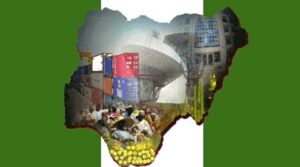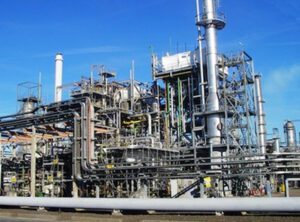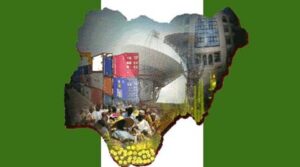Soaring cost of living in Nigeria and the need to tame the trend
It is now an open secret that since the removal of fuel subsidy, cost of living in Nigeria has risen astronomically. Virtually everything ranging from staple food to other basic needs of an average family in the country has gone out of reach.
The oil subsidy removal as soon as it was announced on May 29th, 2023 by the current President of Nigeria, Ahmed Bola Tinubu shortly after his inauguration, automatically pushed up prices of everything to where they are today.
For instance, a litre of fuel that prior to that time sold at N159- N250 suddenly jumped up to N550 and now N625.
In the same sequence, transportation fares have tripled from previous levels or current charges to match with the current cost of petroleum products prices. For instance, a trip from Port Harcourt to Lagos that used to be N10,000 by bus, now cost as much as N27,000 to N35,000.
Other items like cooking gas, building materials also followed suit. For example, one bag of cement is now sold at over N3,000 per bag.
As if that were not enough, electricity tariff has also been increased. We reliably gathered that NERC has recently approved the hike of pre-paid meter by 40 per cent from its previous cost.
Consumers have also been made to pay more for electricity consumption.
The list is endless. The question is how did we get here? And how do we liberate ourselves from this self-inflicted torture.
President Tinubu has repeatedly appealed to Nigerians to exercise patience, as plans according to him are in top gear to address the situation. But the question on the lips of every Nigerian is how long will this patience last?
According to them, there are no indices indicating that the end of the sufferings are in sight.
At this juncture, it is important to look at possible remedies to this perennial high cost of living in the country.
Many people have suggested and rightly too, that the only panacea to addressing this malady is bringing our four refineries back on stream.
The refinery or petroleum products are like tripod upon which every economic activity revolves.
What that practically means is that any negative touch on its pricing, automatically translates to increases on other offshoots. The reason is that it is either you are buying a petroleum product directly or you are transporting to a place where you will purchase a product. All these economic activities amount to costs, which overtly or covertly impact on your economic well-being.
Therefore repairing our refineries becomes key to taming the soaring cost of living in the country.
Another antidote to the freightening hyper-inflation in Nigeria is repositioning our focus in terms of diversifying our economy. A rat that has one hole,they say does not live long.
Nigeria is over sixty years old now as a nation and its economy is still solely based on crude oil. And worse still, we watched our refineries dilapidate beyond repairs to the extent that we import all our refined petroleum products with hard currency.
This poor economic policy plunged Nigeria into a heavily indebted nation, courtesy of the birth of the oil subsidy regime. This, of course, was hijacked by few influential merchantalists, popularly referred to as cabals, who used the opportunity to impoverish their fellow citizens in the name of making profits.
At this level of our nationhood, one would have expected our leaders to have diversified the country’s economy outside oil. What happened to agriculture and its allied businesses? Even the solid minerals in the country remained largely untapped and all concentration is on crude oil.
There has not been any tangible attempt by the previous administrations industrialise the country, to save us from being perpetually dependent on Western nations.
The only way to achieve that is to formulate deliberate policies to develop our own home-grown technology to solve our demand, that must be tailored towards industrialisation.
It has been repeatedly said and proven too that technology is not transferable, it is either developed locally or stolen.
It is therefore incumbent on our leaders to do the needful and go beyond mere repairs of aged-refineries and develop our own technology to manufacture our own goods, which will of course serve as permanent solution to high cost of living. It is not too late to start now.




